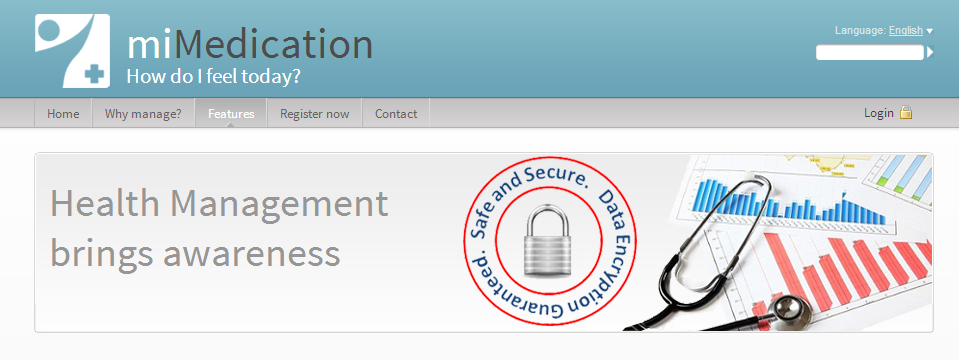Startup Rx: How Do We Get to Healthcare Technology Innovation? A Prescription from BizSpark Startup MiMedication
Being a start-up is never easy but some markets are particularly challenging. The healthcare sector is arguably one of these, because of the (understandably) often complex layers of legislation and scientific validation required, so adoption of new innovation can be lengthy.
MiMedication attended health2con.com , held in San Francisco over the past three days. They are a healthcare start-up based in Belgium that has developed a simple and easy way for patients suffering from lung disease (more formerly known Chronic Obstructive Pulmonary Disease or COPD) to manage their symptoms more effectively. While MiMedication is experiencing some strong early success, it has encountered some hurdles along the way. CEO and founder Mitchell Silva describes some of the challenges of innovating in the healthcare sector and how MiMedication is trying to tackle these.
CEO Mitchell Silva writes:
“We launched MiMedication in early 2012. We are in the position of being able to view the market from both the patient and the medical profession’s point of view: I’m an entrepreneur who happens to have a rare lung disease, while my business partner, Erard le Beau de Hemricourt is a medical doctor in nuclear medicine, with an impressive track record. I’ve also got a PhD in bio-science engineering (specifically on cough sound analysis of COPD and asthma patients.
Chronic Obstructive Pulmonary Disease (COPD) affects between 4-10 per cent of people in the developed world. While many of them have yet to be diagnosed, managing the healthcare of this group of patients is a big issue for the medical profession and has a big impact on the cost of the healthcare system. One of the biggest challenges is to minimise ‘exacerbation’ through self-management.
This is where miMedication comes in, providing a simple and easy way for patients to record and monitor their symptoms, be aware of the impact of medication and of course, providing healthcare professionals with patient data that they can in turn use to support them more efficiently. The service is free to patients and our revenue model is based on working with the B2B healthcare market, such as home care and pharmaceutical companies.
Healthcare market is hard
Having a great idea for a healthcare application is just the first step. Working with the healthcare and public sector in general can be challenging, for several reasons: the decision making process is complex and length; independent scientific or medical validation or endorsement is often required in order for a product or service to be considered seriously; and medical legislation varies widely across European countries. All this means that launching a medical-based start-up can involve lobbying as much as it does traditional sales and marketing.
To help address all this, we focused from our very early days on partnering with the right organisations. For instance, we have an advisory board, which includes academics, doctors, pharmacists, the Belgian lung COPD patient association and Microsoft. The challenge is to translate the needs from the care providers into understandable actions for the patients that also motivate them to become empowered patients. All these contacts have been a great help at all stages of our evolution to date.
So given the hurdles, would I discourage a start-up from focusing on the healthcare sector? In fact, I say the opposite. Commercially, healthcare IT is a huge growth market and while it can be challenging for small organisations, there are some great opportunities for innovative start-ups. From a philanthropic point of view, using IT to help eliminate or minimise the impact of disease and illness is a great aspiration.”
Mitchell Silva’s top tips for other healthcare IT start-ups:
- Get experts involved – doctors, pharmacists, patient groups can all advise you both during the development and deployment stages of your project
- Top down and bottom up – it’s no good having a product or service that appeals just to the medical profession or just to users and having a solution that appeals to both sides is not always easy to achieve, so consult with both groups right from day one.
- Network and be visible – go to healthcare events, be seen as involved in the healthcare community, meet and listen to as many useful contacts as possible. As well as getting your name out there, you will learn a great deal.
- Get professional validation – this will vary according to your product or service, but may be a pre-requisite in order to be taken seriously in your marketplace.
- Work with vendors- make good technology partnerships. For instance, our collaboration with Microsoft has been very useful to us, not just because of the free access to technology that being part of BizSpark has given us: the local Microsoft Innovation Centre have helped us to develop our solution, as well as introducing us to useful third parties, including the healthcare profession and potential investors.
